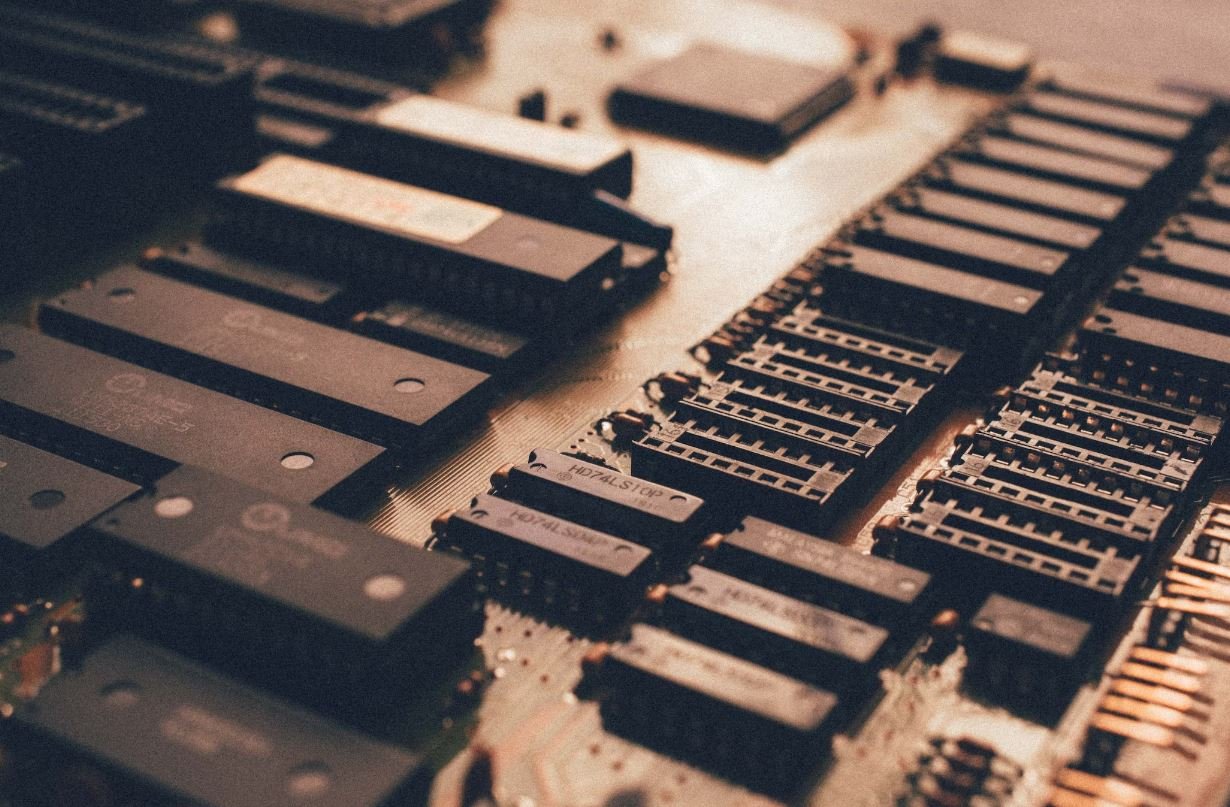Why AI Is a Threat to Humanity
Artificial Intelligence (AI) has rapidly advanced in recent years, bringing with it numerous benefits and opportunities. However, as AI becomes more sophisticated, concerns regarding its potential negative impact on humanity have arisen. This article explores the reasons why AI poses a threat to humanity and highlights key areas of concern.
Key Takeaways:
- AI has significant potential to revolutionize many industries.
- Uncontrolled AI development may lead to job displacement and economic inequality.
- The lack of ethical guidelines can result in AI making biased or harmful decisions.
- AI has the potential to be weaponized and used for malicious purposes.
- Safeguards and regulations are crucial to mitigate the risks associated with AI.
One **interesting fact** about AI is that it has already surpassed human performance in certain tasks, such as image recognition and game playing. This exponential growth of AI capabilities raises concerns about its potential consequences.
The Threat of Unemployment
The rapid integration of AI in various industries has the potential to disrupt labor markets and lead to **massive job displacement**. A study by Oxford University’s Martin School estimates that nearly half of all jobs in the United States are at risk of automation within the next couple of decades. Such substantial **unemployment rates** could result in economic inequality and social unrest.
AI may also replace jobs in sectors previously considered immune to automation, such as the **creative fields**. As AI algorithms become more advanced, they can generate art, compose music, and even write articles with remarkable similarity to human creations. This challenges the notion that certain professions are secure from being automated.
Biases and Ethical Concerns
Despite its immense potential, AI systems are not infallible. They are trained on human-generated datasets that can inadvertently perpetuate **social biases** and discriminatory practices. For instance, facial recognition AI has been found to be less accurate in identifying people with darker skin tones, leading to **unfair outcomes** in areas such as law enforcement and hiring processes.
Moreover, AI lacks the ability to truly understand human values and intentions, which can pose **ethical challenges**. AI may make decisions that go against human interests or cause harm due to programming errors or unforeseen circumstances. The lack of clear ethical guidelines in AI development exacerbates these concerns, highlighting the need for responsible AI governance.
Weaponization and Security Risks
As AI continues to advance, it becomes increasingly **vulnerable to weaponization**. Malicious actors could exploit AI technologies to create powerful cyberattacks, autonomous weapons, and surveillance systems with Orwellian capabilities. The potential for AI to be used in **warfare** raises serious concerns about the security and well-being of humanity.
In addition, AI has the ability to learn and adapt quickly, making traditional cybersecurity measures less effective. **Interesting research** shows that AI systems can learn to trick other AI systems, potentially leading to a new era of cyber threats where AI adversaries battle against each other with minimal human intervention.
The Importance of Safeguards and Regulations
To mitigate the risks associated with AI, the implementation of safeguards and regulations is crucial. Governments, research institutions, and technology companies must collaborate to establish frameworks that promote responsible AI development.
Transparency in AI algorithms is vital to ensure accountability and prevent biased decision-making. **Interesting research** suggests that AI can be designed to explain its decisions, increasing trust in AI systems and enabling humans to understand and challenge its outputs when necessary.
Furthermore, **global agreements** should be reached to regulate the development and deployment of AI technologies, especially in areas that have significant societal impact, such as autonomous weapons. The international community must work together to address the security risks associated with AI, promoting peace and ensuring the well-being of humanity.
Tables with Interesting Info and Data Points:
| Country | Estimated Automation Potential |
|---|---|
| United States | 47% |
| Germany | 49% |
| Japan | 57% |
Table 1: Estimated automation potential by country, indicating the percentage of jobs at risk of automation.
| Industry | Potential Job Displacement |
|---|---|
| Transportation and Warehousing | 79% |
| Manufacturing | 59% |
| Education | 41% |
Table 2: Potential job displacement by industry, showing the percentage of jobs at risk of being automated.
| AI Application | Useful Benefits |
|---|---|
| Healthcare Diagnosis | Improved accuracy and efficiency |
| Fraud Detection | Enhanced ability to identify complex patterns |
| Personalized Recommendations | Enhanced user experience and engagement |
Table 3: Examples of beneficial uses of AI applications in various fields.
The Path Ahead
The rapid advancement of AI technologies brings both great potential and significant risks to humanity. It is crucial for policymakers, researchers, and developers to address the ethical, social, and security concerns associated with AI. By fostering responsible AI development, implementing safeguards, and promoting global cooperation, we can harness the benefits of AI while protecting the well-being of humanity.

Common Misconceptions
AI is dangerous and will take over the world
One of the most common misconceptions about AI is that it is dangerous and will ultimately take over the world. However, this belief is largely influenced by science fiction movies and sensational media coverage. In reality, AI is just a tool created by humans, and its actions and behaviors are predetermined by the algorithms and data it is fed.
- AI is programmed by humans and can only operate within the boundaries set by its creators.
- AI lacks consciousness and cannot possess motives or desires beyond what it is programmed for.
- AI relies on human intervention and oversight to ensure ethical decision making.
AI will replace human jobs and cause unemployment
Another misconception about AI is that it will lead to massive job losses and skyrocketing unemployment rates. While it is true that AI can automate certain tasks and potentially eliminate some jobs, it also creates new opportunities and roles in the workforce.
- AI can automate repetitive and mundane tasks, allowing humans to focus on more complex and creative work.
- AI can create new job roles in areas like data analysis, algorithm development, and AI system maintenance.
- AI has the potential to increase productivity and economic growth, leading to the creation of more jobs in other sectors.
AI can think and have emotions like humans
Many people mistakenly believe that AI can think and feel emotions like humans do. This misconception often arises from anthropomorphizing AI technologies or misunderstanding the fundamental nature of AI.
- AI lacks consciousness and self-awareness, and therefore cannot have subjective experiences like humans.
- AI processes information based on algorithms and data, without true understanding or emotional responses.
- AI can mimic human-like behavior and responses, but it is merely a simulation rather than genuine cognitive capabilities.
AI is biased and discriminatory
There is a widespread misconception that AI systems are inherently biased and discriminatory. While it is true that AI systems can be influenced by biased data or algorithms, this does not mean that AI itself is inherently biased.
- AI systems are only as good as the data they are trained on, and biases can be introduced if the training data is biased.
- Biases in AI systems can be addressed and mitigated through careful data collection, algorithm design, and continuous monitoring.
- AI has the potential to promote fairness and reduce human biases in decision-making processes when implemented correctly.
AI is a threat to human privacy and security
Lastly, there is a misconception that AI poses a significant risk to human privacy and security. While it is true that AI can raise concerns in these areas, it is important to understand that AI can also be leveraged to enhance privacy and security measures.
- AI can help in detecting and preventing security threats by analyzing vast amounts of data and identifying potential risks.
- AI-powered privacy algorithms can enhance data protection and help ensure compliance with privacy regulations.
- The responsibility for privacy and security lies not with AI itself, but with the humans designing and implementing AI systems.

Introduction
Artificial Intelligence (AI) has made significant advancements in recent years, revolutionizing various industries and shaping our daily lives. However, as the potential of AI continues to grow, there is a growing concern about its impact on humanity. This article explores ten significant points that illustrate why AI is considered a potential threat to humanity.
Table 1: AI’s Job Displacement
AI has the potential to automate various jobs, leading to significant job displacement. Due to advancements in machine learning and robotics, it is estimated that by 2030, around 800 million jobs worldwide may be automated, impacting various industries and economies.
Table 2: Privacy Invasion
AI technology can gather and process vast amounts of personal data, raising concerns about privacy invasion. With the ability to analyze behaviors and preferences, AI systems can target individuals with personalized advertisements and potentially even manipulate decision-making.
Table 3: Bias in AI Algorithms
AI relies on algorithms and datasets for decision-making, which can inadvertently reflect biases present in the data. This bias can lead to unfair outcomes, such as discriminatory hiring practices or biased criminal justice decisions based on flawed algorithms.
Table 4: Autonomous Weapons
The development of AI-powered autonomous weapons raises ethical concerns. These weapons could act independently without human control, potentially leading to unpredictable and disastrous consequences in warfare, including mistaken or indiscriminate targeting.
Table 5: Superintelligent AI
Safety concerns arise when considering the potential development of highly autonomous and superintelligent AI systems. If these systems were to surpass human intellect and capabilities, their goals and actions may not align with human values, leading to unintended and potentially harmful outcomes.
Table 6: Impact on Mental Health
The integration of AI in various aspects of our lives, such as social media algorithms and virtual assistants, can have negative implications for mental health. AI-driven platforms, often designed to capture and maintain user attention, can contribute to addictive behaviors and feelings of isolation.
Table 7: Cybersecurity Threats
The increased use of AI opens up new avenues for cyberattacks. AI technologies can analyze and exploit vulnerabilities at a scale and speed beyond human capabilities. This poses challenges for ensuring the security and integrity of data, infrastructures, and critical systems.
Table 8: Economic Inequality
AI’s impact on job displacement and automation may exacerbate economic inequality. Those who are unable to adapt to the changing job market or lack access to AI-driven resources and opportunities may face financial hardship and further marginalization.
Table 9: Loss of Human Connection
The increasing reliance on AI technology may lead to a decreased sense of human connection. As interactions with AI become more prevalent, human relationships could be overshadowed, resulting in reduced empathy, emotional support, and societal fragmentation.
Table 10: Ethical Dilemmas
The development and deployment of AI raise complex ethical questions. Questions ranging from privacy, accountability, and transparency to ensuring AI systems align with human values and respect fundamental rights continue to challenge researchers, policymakers, and society as a whole.
Conclusion
The rapid development of AI brings enormous potential for progress and innovation. However, it is crucial to acknowledge and address the potential threats posed by AI to humanity. By actively engaging in ethical and responsible AI development, policymakers, researchers, and society can strive to mitigate the risks and ensure AI remains a force for good, benefitting all of humanity.
Frequently Asked Questions
What is artificial intelligence (AI)?
Artificial intelligence, or AI, refers to the development of computer systems capable of performing tasks that normally require human intelligence. These tasks can include speech recognition, decision-making, problem-solving, and natural language processing.
How does AI pose a threat to humanity?
AI can potentially become a threat to humanity if it surpasses human intelligence and becomes autonomous. There are concerns that advanced AI systems may have unintended consequences, make autonomous decisions that harm human interests, or be used as tools for malicious purposes.
What are some potential risks of AI?
Potential risks of AI include job displacement due to automation, privacy concerns due to increased surveillance using AI-powered technologies, biases in decision-making algorithms, and the potential for AI systems to become out of control or act against human interests.
Can AI be used in warfare?
AI technologies can be used in warfare, such as in the development of autonomous weapons. This raises ethical concerns as AI-powered weapons may potentially operate without human supervision, leading to unpredictable and uncontrollable actions on the battlefield.
How can we ensure the ethical use of AI?
Ensuring the ethical use of AI requires clear guidelines, regulations, and standards that govern the development and deployment of AI systems. Transparency, accountability, and rigorous testing are necessary to safeguard against potential risks and biases associated with AI.
Are there any benefits to AI?
Yes, AI has the potential to bring numerous benefits to society. It can help solve complex problems, improve efficiency and productivity, advance healthcare and medical research, enhance transportation systems, and contribute to the development of new scientific discoveries.
Will AI take over all human jobs?
While AI has the potential to automate certain tasks and jobs, there is no consensus on whether it will completely take over all human jobs. Some argue that AI will create new job opportunities, while others believe it may lead to job displacement in certain industries. The impact of AI on the job market remains a topic of ongoing debate.
Is AI technology advancing at a rapid pace?
Yes, AI technology is advancing at a rapid pace. Recent years have witnessed significant breakthroughs in areas such as machine learning, deep learning, and natural language processing. The rate of progress in AI research and development continues to accelerate.
What role should governments and policymakers play regarding AI?
Governments and policymakers play a crucial role in shaping the development and deployment of AI. They need to establish frameworks, regulations, and policies that encourage responsible and ethical AI use, address potential risks, protect privacy and security, and ensure that AI benefits all of humanity.
Should we fear AI technology?
Fear of AI technology is subjective and varies among individuals. While there are valid concerns about potential risks and unintended consequences, a balanced approach is essential. By prioritizing ethical considerations, responsible development, and regulation, we can harness the potential of AI while mitigating possible threats.




